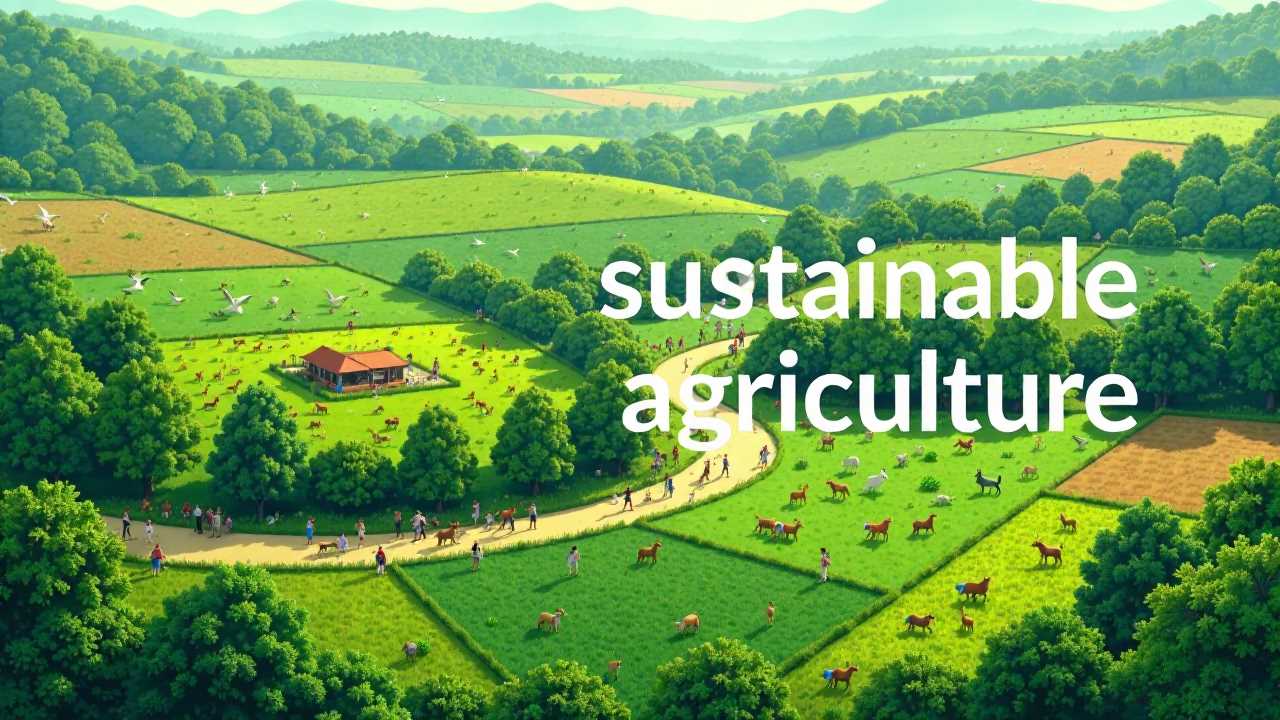
Understanding Sustainable Urban Farming
Sustainable urban farming represents a transformative approach to food production that integrates agroecology, biodiversity, and permaculture principles within urban settings. This method not only addresses the pressing need for local food sources but also enhances urban ecology and promotes soil health. As urban populations continue to grow, the demand for sustainable practices in food production becomes increasingly vital for ensuring climate resilience.
The Role of Agroecology in Urban Farming
Agroecology serves as the backbone of sustainable urban farming by applying ecological principles to agricultural practices. This approach emphasizes the importance of understanding local ecosystems and utilizing natural processes to enhance productivity. By fostering biodiversity, urban farms can create resilient systems that are less reliant on chemical inputs and more adaptable to changing environmental conditions.
In urban environments, agroecological practices can include crop rotation, intercropping, and the use of organic fertilizers. These methods not only improve soil health but also encourage the proliferation of beneficial insects and microorganisms, which play a crucial role in maintaining ecological balance. By prioritizing agroecology, urban farmers can cultivate a diverse range of crops that contribute to food security while minimizing their environmental footprint.
Enhancing Biodiversity in Urban Settings
Biodiversity is a cornerstone of sustainable urban farming. Diverse ecosystems are more resilient and capable of withstanding environmental stressors. Urban farms that incorporate a variety of plants, animals, and microorganisms can create a balanced ecosystem that supports both food production and environmental health.
Integrating native plants into urban farms can significantly enhance local biodiversity. These plants are adapted to the local climate and soil conditions, requiring fewer resources and providing habitat for local wildlife. Additionally, urban farms can serve as critical green spaces that support pollinators, such as bees and butterflies, which are essential for the pollination of many crops.
Permaculture: Designing for Sustainability
Permaculture is a design philosophy that seeks to create sustainable and self-sufficient agricultural systems. In the context of urban farming, permaculture principles can be applied to maximize space and resources while minimizing waste. This approach encourages the use of perennial plants, which require less maintenance and provide year-round yields.
Urban permaculture designs often incorporate features such as rainwater harvesting systems, composting, and vertical gardening. These practices not only enhance the efficiency of urban farms but also contribute to the overall sustainability of the urban environment. By designing urban farms with permaculture principles in mind, we can create spaces that are not only productive but also regenerative.
Urban Ecology and Its Impact on Farming
Urban ecology examines the interactions between living organisms and their urban environment. Understanding these interactions is essential for developing sustainable urban farming practices. Urban farms can play a vital role in enhancing urban ecology by providing green spaces that improve air quality, reduce heat island effects, and promote biodiversity.
By integrating urban farms into city planning, we can create multifunctional spaces that serve as both food production areas and ecological habitats. These farms can help mitigate the impacts of urbanization, such as habitat loss and pollution, while providing fresh produce to local communities.
Soil Health: The Foundation of Sustainable Farming
Soil health is paramount in sustainable urban farming. Healthy soil is rich in organic matter, nutrients, and microorganisms, which are essential for plant growth. Urban farms can improve soil health through practices such as cover cropping, composting, and reduced tillage.
Implementing these practices not only enhances soil fertility but also increases the soil's ability to retain water and sequester carbon. This is particularly important in the context of climate resilience, as healthy soils can better withstand extreme weather events and contribute to the overall stability of the ecosystem.
Building Climate Resilience Through Sustainable Practices
Climate resilience refers to the ability of systems to anticipate, prepare for, and respond to climate-related disruptions. Sustainable urban farming practices contribute to climate resilience by promoting local food production, reducing reliance on fossil fuels, and enhancing biodiversity.
By growing food locally, urban farms can reduce the carbon footprint associated with food transportation. Additionally, sustainable practices such as agroecology and permaculture can help mitigate the impacts of climate change by improving soil health and promoting biodiversity. These practices create systems that are more adaptable to changing conditions, ensuring food security in the face of climate uncertainty.
A Vision for the Future of Urban Farming
Sustainable urban farming represents a holistic approach to food production that integrates agroecology, biodiversity, permaculture, urban ecology, and soil health. By embracing these principles, urban farmers can cultivate resilient systems that contribute to climate resilience and enhance the quality of life in urban areas. As we move forward, it is imperative that we prioritize sustainable practices in urban farming to ensure a healthier, more sustainable future for our cities and communities.
 Business & FinanceHealth & MedicineTechnologyLifestyle & CultureScience & EnvironmentWorld NewsPrivacy PolicyTerms And Conditions
Business & FinanceHealth & MedicineTechnologyLifestyle & CultureScience & EnvironmentWorld NewsPrivacy PolicyTerms And Conditions
